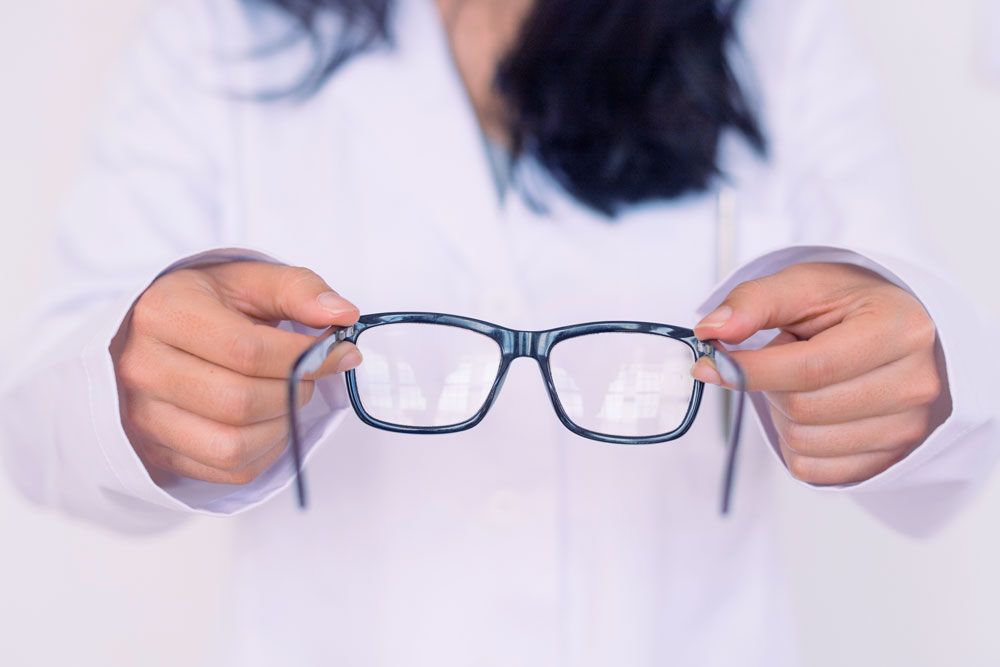The role of a Dispensing Optician
- To interpret the prescription from the Optometrist/ Ophthalmologist into an accurate appliance.
- The prescription is duly analysed and the lens type decided upon, depending on the lifestyle of the patient, e.g single vision, bifocals, multifocals, tinted lenses, safety lenses, occupational lenses.
- Advice on coatings on lenses to protect against ultra violet light, glare and sunlight.
- Advice on frame style.
- Measurement on suitable frame choice.
- Advice is given on the likely appearance of the finished spectacles, e.g. thickness and weight of the frame and lenses.
- To measure for custom made frames.
- To modify spectacle frames to ensure optimum fit.
- To check spectacles on completion to ensure correct to prescription ordered.


The Qualified Registered Dispensing Optician can help people with low vision. Following the eye examination they can determine what strength of Visual Aid is required. They will teach the patient on how to use the device and check with them on progress after the adaption time.
A Dispensing Optician can also do further study in Contact lenses. The ABDO run a Contact lens fitting certificate and when the Dispensing Optician completes that course they can register with CORU. Following a Sight Test, a Dispensing Optician with the entitlement to fit contact lenses can perform Contact lens fits and aftercares. They can advise you on the most suitable contact lens for your needs and ensure that your contact lenses are comfortable and give good vision.
If your child needs spectacles, you may be interested to know that a child’s facial features are not simply smaller versions of adults and their spectacles should not be either. A Dispensing Optician is the best person to ensure that children get spectacle frames that fit their faces well , give the best optical and cosmetic result.
- To check fitting of completed spectacles on patient at time of collection.
- To advise on the care of spectacles.
- To advise parents /guardians on care of their children’s spectacles and fitting.
- To advise parents/guardians to note changes in growth of children that may affect fitting of spectacles.
- After collection available to carry out adjustments or repairs if necessary.
- Advice is given on prescription sun spectacles, contact lenses safety, magnifiers as low visual aids and other optical aids.
- To carry out aftercare on contact lens wearing patients.
- To carry on aftercare with low visual aid patients and their appliances.
The majority of Dispensing Opticians have completed a three year blended course from UK Institutions, along with the direct supervision of a qualified and registered optician which occurs whilst working in practice. Attendance at block release courses is required at the relevant colleges.
As well as passing theory and practical examinations, a Optician, must submit a portfolio of case records, before being deemed as qualified by their college and register with the General Optical Council which CORU recognises for registration in Ireland.
Afterwards as qualified Dispensing Opticians they are required to complete Continuous Professional Development as part of their membership of the I.A.D.O.

